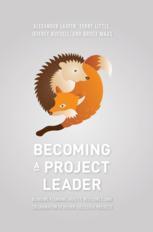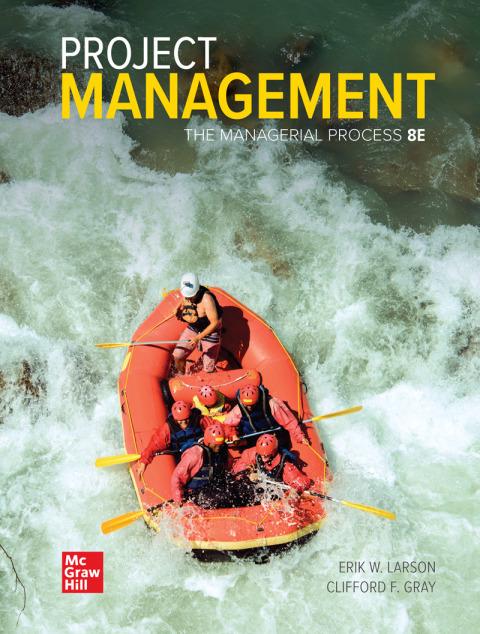Forewordtothe1stedition
Akeywordinthetitleofthisbookis ‘control’.Thisword,inthecontextofmanagement,impliestheobservationofperformanceinrelationtoplanandtheswifttaking ofcorrectiveactionwhentheperformanceisinadequate.Incontrasttomanyother publicationswhichpurporttodealwiththesubject,themechanismofcontrolpermeates theproceduresthatMrLesteradvocates.Insomechapters,suchasthatonManualand ComputerAnalysis,itistherebyimplication.Inothers,suchasthatonCostControl,itis thereinspecificterms.
Thebook,inshort,dealswithrealproblemsandtheirrealsolutions.Irecommendit thereforebothtostudentswhoseektounderstandthesubjectandtomanagerswho wishtosharpentheirperformance.
byGeoffreyTrimble
y ProfessorofConstructionManagement UniversityofTechnology,Loughborough,UnitedKingdom
y Deceasedauthor.
Thispageintentionallyleftblank
Another random document with no related content on Scribd:
The mention of land-crab catching in Grenada recalls to me the lobster-spearing at Halifax, a sport which was carried on at night. In the bows of the boat large fires were kept burning. Standing ready, the sportsman holds in his grasp a trident, which is not pointed, but is like a huge pair of tweezers. The lobsters are seen crawling beneath the clear water. A sudden dart is made with the trident, the tweezers open, and seize the prey, which is hauled on board and thrown among others in the bottom of the boat. Many dozens are caught in this way, and the scene is very exciting when there are several boats, the fires in them looking strange and weird-like.
If I were to begin recalling old times at Halifax, with its sleigh club in winter and the flowers of its summer, I fear I should become very wearisome. When my regiment was quartered in Nova Scotia, we got a bear, about the size of a small donkey, which became a great favourite. The order came for us to return home in the troopship Resistance, commanded by Captain Bradshaw. Great was our consternation when that officer issued a proclamation that only a certain number of pets, and no bears, should be allowed on board. We all vowed that the bear was not to be left behind, and a clever plan to smuggle it on board was hit upon by two of my brother officers. As there were many casks to be hoisted on board, chloroform was administered to our bear, and he was packed in one of them. As it was going to be hoisted in the air, the captain asked,
‘What’s in that big barrel?’
The Ranger, who was seeing it elevated, answered, promptly,
‘The warm clothing of the regiment, sorr,’ and being asked by a comrade why he said so, he observed, with a wink, ‘Begorra, I thought the ould Tartar moight see the fur through the bunghole of the cask and smell—a bear!’
The sailors were delighted and helped to stow our favourite away, and I believe the captain never knew anything about it till we had been some time at sea, and then he pretended to have been cognizant of the fact all along. Our bear was with us at Parkhurst
Barracks, and was always in a friendly disposition with all. A young fellow dined at our mess, and I suppose drank too much champagne, for he was discovered peacefully reposing beside the bear in its kennel.
The 38th Regiment brought home two bears, very fine, large animals. A child was playing with them and got a hug, which killed the poor little thing. Down came an official from the Horse Guards with orders that all regimental bears were to be destroyed; we gave ours, however, to the Zoo, where it lived in the pit and was fed with buns by children. Round its neck was a brass collar with ‘Connaught Rangers’ engraved on it. I do not know its further history.
CHAPTER III.
ENGLAND AND THE CONTINENT.
RETURN TO ENGLAND PARIS ENGLISH AND FRENCH OFFICERS UN VERITABLE ROSBIF PLUM POUDIN TOUCHING COURTESY ISLE OF WIGHT PARKHURST BARRACKS ELECTION AT COWES A TIPSY DRIVER CAMP AT CHOBHAM VISITORS TO THE CAMP THE REV. DR. CUMMING IN THE MANUFACTURING DISTRICTS ORDERED TO THE EAST GENEROUS CONDUCT OF THE CUNARDS—WAR DITTIES—SCUTARI—A WRESTLING MATCH —A GOOD STORY—A FAIRY SCENE—THE SULTAN’S WIFE.
CHAPTER III.
On our arrival in England we disembarked at Chatham and marched to Canterbury, where we were quartered for some months. The 17th Lancers, who occupied the cavalry barracks, were one of the most hospitable and pleasant corps I ever met; many of them have passed away, many of them fell in the glorious charge of Balaclava, but at the time of which I write they formed a gathering of the finest specimens of the light dragoon.
When the leave time came round I went to Paris. The late emperor was then President of the French Republic, and enjoyment seemed the order of the day. The balls of the Tuileries were most amusing; all officers were in uniform, and the dress of the 17th Lancers of that day, several of whom were present at one of these balls, was universally admired. I went in the tight coatee with epaulettes which was an infantry officer’s costume at that time, and no doubt thought myself very fine; but my vanity received a shock when a French lady passed, and, looking towards me, said to her friend, ‘Ma foi, c’est un véritable Rosbif!’ We were received with great civility by the officers of the artillery quartered at Vincennes, who invited us to pay them a visit, which we did a day or two after the ball. Nothing could exceed the friendliness of these French gunners. We dined with them in a café, as they had no mess, and I
remember the great event was the ‘plum poudin,’ the very remembrance of which fills my mind with horror. The excitement of the Frenchmen was intense when a large soup tureen was placed on the table. ‘Ah, le voilà! Le plum poudin! Ah, oh!’ When the cover was removed a mass of liquid horrors was brought to view, among which a bottle of cognac was poured and then lighted. This fearful decoction was ladled out into soup plates, and with anxious eyes our friends gazed on us as we began to eat. I suppose the brandy saved us, but we certainly endangered our lives for the honour of our country.
When we were leaving, these kindly-disposed fellows insisted on paying our cab hire to Paris, and we had the greatest difficulty in preventing them doing so. We were anxious to give them some return for their civility, so the lancers and myself resolved to ask them to dinner at the Rocher de Cancale. A note was therefore despatched requesting the pleasure of their company. A reply came to me from one of them, a nice young fellow called Joubert, begging us to postpone the entertainment for a week. Of course this was complied with, and when the week had elapsed we had a very jolly party. Joubert accounted for the delay which had been requested, which was owing, as he said, to the fact that we had honoured them with our presence in plain clothes, and, as they had nothing but uniform, they had to get mufti made! This was quite touching by its simple courtesy.
We had a great deal of fun during our stay in Paris. On our first arrival my friends, the lancers, asked me to order dinner at the ‘Trois Frères,’ which was in existence then. I was determined to have a good dinner; but I had forgotten Parisian ways, having been absent for so long in the West Indies and America. Anyway, I ordered a portion for each person. I think we numbered eight; so there were eight soups, eight fish, eight of each entrée, &c., and the room seemed hardly large enough to contain our various plats. How we did laugh and enjoy ourselves! With one exception, I am now the only one left of that merry party.
My leave was drawing to a close, so I left Paris, where every moment had been so occupied. I had not done much in letterwriting, and was, therefore, quite ignorant of regimental news. On arriving at Canterbury, I got a fly, and ordered the driver to take me to the barracks; but, on reaching the infantry lines, I was surprised to find all in darkness, although it was only about half-past seven in the evening.
At length an 88th man came up to the carriage in which I was seated.
‘What’s become of everybody?’ I exclaimed.
‘Well, sorr, they’re all gone; a sudden order came, and they’re gone, except just a few to give over the barracks.’
‘Gone—where to?’ I asked.
After a time he replied, ‘They’re gone, sorr, to some island; but I disremember the name.’
With this very unsatisfactory information, I told cabby to drive me to the ‘Fountain Hotel,’ where I was told that the regiment had left for the Isle of Wight.
Parkhurst Barracks was occupied by only one battalion, the 88th, and the four company dépôt of the Cameronians. What delightful quarters the Isle of Wight was in these days! There was no railway then in the island; a four-horse coach plied between Newport and Hyde, and the drive was most enjoyable. The pretty little villages have now become staring towns. It is difficult to find a retired nook in the noisy country now all built over.
The officers of the 88th received the greatest hospitality from everyone in the Isle of Wight. The numbers were not overwhelming, there being few red-coats at the barracks. The private soldiers also were most kindly treated by the inhabitants of this charming island. It is a strange fact that at home in Britain, because a man wears a red coat and is liable to a greater punishment for drunkenness than a civilian, kind-hearted men consider themselves bound to offer him
a dram, and even press him to take it, while to another class of men they would only wish ‘God speed.’ When my regiment was quartered at Parkhurst Barracks, an election took place, and the usually quiet town of Cowes was very excited. I had been asked to dinner there by a very hospitable host, and a married brother officer offered me a seat in his carriage. The party was a very pleasant one, and the cheers of the successful candidate’s supporters were distinctly heard every now and then.
When we were leaving, my friend saw that his coachman, a private soldier, had been drinking success to the newly-elected member—in other words, was very drunk, so he whispered to me to get inside with his wife, and that he would drive. The lady, however, was not to be deceived by remarks about the pleasures of smoking a cigar and driving home by moonlight. She soon exclaimed,
‘I am sure there is something wrong,’ and at this moment coachee made a tremendous lurch. ‘The servant is drunk. He will knock my husband off the box. Oh! Captain Maxwell, do, do something.’
What could I do to pacify this kind lady, whose husband was my dearest friend? I was in a dreadful quandary. A bright idea came to the anxious wife.
‘Oh, Captain Maxwell, will you hold the man on to the box?’
So I let down the front window, and with considerable difficulty got hold of some part of the horrid man’s dress, and so pretended to keep him steady. The tipsy wretch made a horrible lurch, and, giving his master a poke in the ribs, said, in a tone half jovial, half sad,
‘Meejor, the missus is pulling my tail!’
We left the Isle of Wight, and, after being quartered for some months at Portsmouth, proceeded to join the camp at Chobham. How much we enjoyed that bloodless campaign, and how absurdly proud of ourselves we all were! The Connaught Rangers were composed of as fine a body of men as could be mustered anywhere, well seasoned soldiers, full of loyalty to the Queen, and imbued with a thorough knowledge of their duties, which it takes many years to
learn, and thus enable a private to become a good noncommissioned officer. In two years from that time how few remained alive! Most of them repose in death on the heights of Sebastopol, where the wild flowers cover their honoured graves. But Chobham was the first camp which had been formed for many years, and we all enjoyed it very much. It was amusing to watch the curiosity displayed by civilians. I have often seen visitors to the camp walk through our mess-kitchen, and horrify our cook by taking the lids off some of his most cherished pots to see what we were to have for dinner.
I remember one day, after a long field-day in the warm sun, going to my tent, throwing myself into an arm-chair, and very nearly falling asleep, when I heard a whispering going on at the entrance, which was gently opened, when a pretty face peeped in, and I heard the remark made, ‘He is asleep,’ but, like the celebrated weasel, I had an eye open. One peculiar feature of Chobham at that time was, that friends who had previously ignored one’s existence all of a sudden became greatly interested in our welfare, especially about luncheon time. The camp at Chobham was the first opportunity many of us had of seeing regiments combined together in brigades and divisions. It was a grand picnic, and was the melodious overture to the great tragedy of the Crimean War.
We were visited by royal personages, by soldiers, sailors, lawyers, and clergymen. The celebrated Dr. Cumming once addressed the men. I remember some of his remarks:
‘I am a man of peace, but, if anyone tried to knock me down, I would do all I could to floor him first.’
The chaplain-general preached a sermon. He said,
‘The last time he had seen such a gathering of soldiers, he himself had taken an active part, for he was then an officer under Wellington.’
Though no one was certain then that there would be war, yet there was a sulphurous vapour impregnating the air, which the most
peaceable inhaled, and the next year the Crimean campaign came on.
After leaving Chobham, we were sent to the manufacturing districts. The head-quarters was stationed at Bury, in Lancashire, and the left wing, to which I belonged, was sent to Ashton-underLine. The cotton-spinners were most hospitable to us. I have a very kindly remembrance of a Mr. Harrison, whose house was in the neighbourhood of our barracks, and who showed me the greatest kindness. But the plot was thickening, and the order came for the Connaught Rangers to embark for the East. The whole of Ashton turned out to see us march away. The streets were decorated, and as the colours were carried past every head was uncovered. One man, however, standing near the hotel in the street through which we passed, did not take off his hat. A young fellow went up to him, and, I suppose, told him to uncover, but he refused to do so. I heard him say: ‘No, I won’t.’ The next moment he was lying on the ground, the young fellow having hit him right between the eyes, and knocked him down. As we proceeded onward, an old woman knelt, and in a loud voice blessed the colours.
When we arrived in Liverpool, we were halted near the Exchange, and the mayor made a speech, which was received with great cheering. The ships in the harbour were gaily decorated with flags, and crowds of people shouted and cheered. On the 4th of April, 1854, the Connaught Rangers embarked on board the Niagara, one of Cunard’s finest steamers, on which we were most sumptuously entertained. On arriving at Constantinople we asked for our bill, and were informed we were guests of the Cunards. We subscribed, and presented the captain with a watch.
Our passage out was a very prosperous one. A calm sea prevailed nearly all the time. Our band played often on deck, and in the bright moonlight the men sat in groups and sang merrily. I still possess some of their cheery ditties.
LOVE, FAREWELL.
‘Now, brave boys, we’re bound for marchin’, Both to Portingale and Spain; Drums are batin’, colours flyin’, And the divil a back we’ll come agin. So, love, farewell!
‘Eighty-eighty and Inniskillen, Boys that’s able, boys that’s willin’, Faugh-a-ballagh and County Down, Stand by the Harp, and stand by the Crown. So, love, farewell!
‘The colonel cries, “Boys, are yez ready?” “We’re at your back, sir, firm and steady, Our pouches filled with ball and pouther, And a firelock sloped on every shoulther.” So, love, farewell!
‘Och, Judy dear, ye’re young and tender, When I’m away ye’ll not surrender, But hould out like an ancient Roman, And I’ll make you an honest woman. So, love, farewell!
‘Och, Judy, should I die in glory, In the papers ye’ll read my awful story; But I’m so bothered with yer charms, I’d rather die within your arms. So, love, farewell!’
I must give another specimen, which, if not very well spelt, is otherwise a proof of the loyalty of a gallant soldier, who afterwards fell at Sebastopol. I copy the whole as given to me on board the Niagara.
‘A soldier that is bound for this late war, and who goes with the most gratified assurance of coming home again with the head of the Disturber of Europe; or, dying like a soldier in the field, and with the heart of a real true subject, he says to his comrades:—
COME TO THE DANOBE.
(Composedby Private EdwardMurphy, LightCompany, 88thRegiment.)
‘Our allies to joine, my boys, The English and Frinch Is going to combine, my boys. We’ll fight till the last, And no mortal we’ll spare, my boys. What better fun could you ask Than chasing the bear, my boys? Now let us with curage Enter the field, my boys, And the bigoted tyrent We’ll make him yield, my boys; And out of the Principalities We’ll make him elope; We’ll show him more play Then he got at Synope. Come, then, come to the Danobe. For the Rangers at present Is wiling to fight, I know, And with Colonel Shirley no Dangers they’ll slight, I know. May he lead them on to fame, As Wallace before has don, And live to command us Untill the battle’s won. Then come to the Danobe, And our officers all The right sort of chaps are they, Comboyned one and all, And ready for the fray, We’ll conquer or die, And may we all live to see The Rushins to fly, Beat both on land and sea.’
On arriving at Gallipoli, we received orders to proceed on to Constantinople. A boat was upset close to our steamer, and one of the Turks took refuge in the paddle-wheel! Most fortunately, he was not killed. When he came on board, we gave him dry clothes, and, as it was the men’s dinner hour, they offered him some pork. His face would have made a good picture. I mention this as the first mistake made by our soldiers in their dealings with Mohammedans.
We anchored near Scutari, between the Sultan’s seraglio and the opposite shore, and in the afternoon we disembarked, and marched into Scutari Barracks, a fine building capable of containing six thousand men. My company, numbering over one hundred, were all in one room. The quarters told off for two subalterns and myself consisted of one large room, lighted by three windows, in front of which was an ottoman with pillows. Cleanliness was not the order of the day, so there were many inhabitants besides ourselves. Our view was not enlivening, as we looked out on the Scutari burying ground, where tall, sombre cypress-trees waved sadly over the tombs of thousands of Mahomet’s followers. In the evening we went for a walk, and, seeing a crowd, we made towards it and found two Turks stripped to the skin, their only garment being a kind of bathing drawers. They were smeared with oil and were engaged wrestling. The wrestlers were not a very pleasing sight, but the entourage was most amusing. Here was a Connaught Ranger in his neat red coat and white belt, without any weapon at all; there a wild warrior of some eastern tribe, armed to the teeth with formidable pistols and curved scimitar. There were women covered up to the eyes, but the eyes were soft and bright, Greeks with long pipes, Turks in green turbans, and Turks in white—a strange and animated scene.
A good story was told of a gallant colonel commanding a most distinguished regiment. He had been given quarters in the Sultan’s wing in Scutari Barracks. A pasha came to pay him an official visit, and, I suppose, approached with reverence the apartments sacred in his estimation. He took off his slippers at the door and entered the room, when, horror of horrors! what did he see?—the said colonel occupied frying pork in a dispatcher on the Sultan’s table.
A brother officer and myself crossed one day by the steamer which plied from Scutari to Galata, and there hired a caique. We were bound for the sweet waters of Europe. We were taken up the Golden Horn, and then floated past green hills and picturesquelooking cottages. All round us were hundreds of gilded caiques laden with handsome women in glittering attire, and boats whose Greek crews sang in wild chorus. As we proceeded onward the river
became narrow, and we arrived at the sweet waters of Europe. It was a fairy scene. Graceful forms in lovely dresses were dotted here and there on the green grass under the shade of the trees, very transparent veils concealing their faces, their long fringed eyes beaming upon us, for the unbelievers were in high favour at that time. We passed also stately Turks, gay Frenchmen, steady-looking Britons, and wonderful Cinderella coaches. A gilded carriage approached, drawn by four black horses, covered with silver trappings; this was followed by a line of other gilded coaches surrounded by armed blacks. A lovely woman glittering with diamonds, her face barely concealed by the thin gauze she wore, was in the stately equipage. This was the Sultan’s wife. In the third carriage following hers was seated a most beautiful girl, by whose charms my brother officer was quite struck. Though he was jostled by the armed blacks, pushed by the escort, knocked by the Turks, he still kept as close as possible to No. 3 carriage. There are many old women at the valley of sweet waters who sell bouquets. One came near and offered some flowers to my brother-officer, who took them, and, watching his opportunity, presented them to this Nourmahal. She smiled and placed them in her bosom, and, taking a rose from the bouquet, held it towards my friend, and then pressed the flower to her lips, on perceiving which the armed blacks began to swagger offensively. The escort of lancers closed up, and, as the carriages were moving away, she rolled her handkerchief up and threw it at my bewildered friend. She then held a looking-glass towards him and pressed it in her arms, thus ending the romance as far as I know, for the gilded coaches and prancing escort all moved on and gradually faded from our sight.
CHAPTER IV.
IN TURKEY AND THE CRIMEA.
ENCHANTING SCENE LOSS OF BAGGAGE HORSES SIR GEORGE BROWN’S ORDER IDENTIFICATION OF LOST HORSES DEALINGS WITH THE PEASANTRY FORAGING CHOLERA IN BULGARIA DISAGREEABLE MISTAKE DR. SHEGOG DEVOTION TO HIS WORK AND SUDDEN DEATH DEATH OF AN OFFICER EMBARKATION AT VARNA THE BLACK SEA FLEET KIND SOLDIERS—OUR FIRST SCARE IN THE CRIMEA—KINDNESS OF LORD RAGLAN—AN OUTLYING PICQUET—STORY OF A CONNAUGHT RANGER—CAPTURE OF BALACLAVA—A SERIOUS MISTAKE.
CHAPTER IV.
An the 29th of May, 1854, we embarked on board the Cambria, and on the 30th arrived at Varna, where we encamped for a few days. On the 5th of June we changed our ground. Our tents were pitched on a height between two lakes. The hills all around us were covered with young trees in beautiful foliage, and on our right was a valley, through which a broad river flowed. The green hills were dotted everywhere with white tents, and curling smoke was stealing out of the woods from many a bivouac fire. It was an enchanting sight. Some of our baggage horses had been stolen, but a few had been recovered. As there was a difficulty, however, in recognising them, Sir George Brown, the general of the light division, issued an order that each animal belonging to the different regiments forming the light division should have some identifying mark, so that, if any of them were stolen, their recovery might be facilitated.
The adjutant of the Connaught Rangers, Arthur Maule, gave orders to his batman to have his initials burnt on his horse’s hindquarters. I suppose Paddy did not know what initials meant, for
Maule, on proceeding with his batman to inspect his nag, found B. R. beautifully clipped and burnt on the charger’s hind-quarters.
‘What does B. R. mean?’ said the astonished officer. ‘My initials are A. M.’
‘Arrah, sure, sir,’ replied the rather offended groom, ‘B. R. stands for British Army.’
The peasantry were much alarmed at our approach at first; but they very soon found out that we were willing to pay freely for the produce of their farms, and in process of time they actually walked through our camp shouting out what they had for sale. One poor man I heard crying out, in a very loud voice, ‘Bono Johnny. Bono bad eggs!’ the result, no doubt, of some wag’s tuition. Colonel Sanders, of the 19th Regiment, and myself rode out one day to forage among the villages, whose inhabitants were generally pleased to provide us with whatever they possessed for a consideration.
This day we had been very successful, and our appearance would have surprised those at home, who think officers of the Army the most luxurious of men. Colonel Sanders had become possessor of several fresh eggs, which he placed in his pockets. I was the proud owner of a duck and two hens, which were put in front of me on the baggage pony I was riding. We got on very well at first; but my duck became obstreperous, and the hens struggled, so my nag began to kick, and roused Colonel Sanders’ charger to do likewise—alas! for the colonel’s coat, where now the pomp and circumstance of glorious war? ‘Oh! the eggs are all smashed!’ was the colonel’s most distressing announcement. We rode into camp very curious specimens of the British soldier. Sanders went away to pass a mauvaisquartd’heure with his batman, and I was received with joy by my servant, Hopkins, who expressed his delight in the following forcible, if not very elegant terms:
‘Hurroo! here’s fowls. I’ve had nothing to rub the sweat off my teeth but stale bread, Hurroo!’
The time passed in Bulgaria by the light division would have been a long continued picnic had not pestilence come upon us, and cholera visited our camp in its most cruel form. It is very sad to recall to one’s memory that beautiful spot which simply by a change of wind was altered from a paradise to a place where death in one of its most horrid forms reigned supreme. We changed our ground very often, but the hideous demon followed us wherever we went, and we welcomed the order when issued for the light division to march to Varna, there to embark.
One cold, raw evening, when cholera was at its worst, several of us were sitting in my tent drinking hot rum and water. The sergeant of my company came to make some report, and I offered him some hot grog, which he accepted. With the greatest care I mixed the drink, and gave it to him, while he made some kindly remark as he drank it off, and then went away. Some one else, coming into the tent soon after, was also invited to ‘liquor up.’ The mug in which the sergeant’s grog had been was still on the table, and the little that was left looked so curious that I put my lips to it, and was terribly distressed to find that I had used salt instead of sugar in concocting it. The great fear came over me that it would make the sergeant feel sick, and that he might fancy he had taken cholera; so I sent for him, and, when he came, I told him of my mistake. His answer surprised me; for he said he knew it was salt from the taste.
‘But, sergeant, was it not very horrid?’ I exclaimed.
‘Well, sir, it was rather nauseous,’ he replied.
‘Why did you drink it?’ I asked.
‘I did not like to let on that I knew it, as you had kindly given me the drink,’ was the astounding reply.
On our march to Varna, we were encamped on the ground which had been vacated by the 79th Highlanders. Our tents were pitched, but great difficulty had been experienced in getting the sick settled in camp, and the doctors had been most terribly overworked. When the detachment of the 88th Regiment were quartered at Grenada in
the West Indies, I saw mentioned in the Gazettethe appointment to the Connaught Rangers of a man with a very curious name, Shegog. This name haunted me, and I never took up a newspaper without reading that Shegog was appointed assistant-surgeon to the 88th. The steamer arrived early one morning at Grenada, and I was wondering what news had come from England when my servant announced, ‘Dr. Shegog.’ The doctor was a curious-looking man, with very prominent eyes, and, when he put his hat on, it was always very far back on his head; but, when we came to know him, we found that there never was a truer man than ‘Old Shay;’ no warmer heart ever beat than his. He accompanied the regiment to Nova Scotia; and after being quartered, on our return home, with me at Ashton-under-Line, he embarked with the 88th on board the Niagara, to proceed to Turkey, in April, 1854.
When cholera attacked the light division in Bulgaria, Dr. Shegog never flagged in his attentions to the sick, while he took but little care of himself. The hospital tent was a fearful place to visit. The poor men were lying on the ground writhing in agony; crying out to be rubbed in accents most pitiful to hear. Others were too far gone to feel pain—their last hour was nearly come. ‘Old Shay’ was everywhere, and doing all in his power for the suffering soldiers. The Roman Catholic priest might be seen kneeling beside the dying men whispering hope to their passing spirits.
The joyous order came at last to move to Varna for embarkation. The news came like a tonic, and the weary men seemed to gain strength at once. Our brigade marched away, and we were full of joyful anticipations. Dr. Shegog had been so occupied looking after the sick that he had no time to think of himself. The poor fellow’s tent was pitched, but he had no dinner to eat. Steevens, Browne, and I messed together, and, as our repast was over, nothing remained. Shegog came to my tent, and asked if we could give him something to eat, but we had not one scrap left. He was told there was lots of brandy, to which he was welcome at any time. He thanked us, but said he wanted something to eat, and at that moment Maule, the adjutant, appeared, and said, ‘Come along. Old
Shay, I have something cold in my tent,’ and so he went away. Next morning, poor, kind-hearted Shegog died of cholera. A man came to me, and told me that the doctor was very ill. When I saw him, all pain was over, and he soon sank to rest. He was buried under the shade of a tree. Who knows the place of his grave now? But what matter? Wherever he may be laid, it is the resting-place of a true and honest worker who lost his life in helping the sick and weary.
As we returned to the camp from Shegog’s funeral, one of my brothers-in-arms said he felt very unwell. We cheered him up as well as we could, but as the night went on he became really ill, and, in the morning, our surgeon passed my tent, and said, ‘Mackie has got cholera.’
The regiment was preparing to proceed on the march to Varna, for we had nearly reached our destination, and our chief, Shirley, proposed that Mackie should be left till later in the day—under charge of a guard—but, as he decided to accompany the battalion, a stretcher was made as comfortable as possible for him, and he was carried by some men of his company. On approaching Varna, he asked them to lower him down to the ground, which they had no sooner done than poor Mackie expired.
Our embarkation at Varna was effected without difficulty. Our vessel, which was towed by a steamer, formed one of that magnificent fleet of men-of-war and transports that covered the Black Sea for miles. When night came on, the scene was marvellous to look upon; light after light shining in the far distance over the calm sea. Sometimes the sea resembled a large harbour full of vessels at anchor, then it assumed the appearance of long streets in some vast town, but all was silent, and filled our minds with awe.
The light division landed at Old Fort in the Crimea. There was no opposition from the Russians, not one of whom was visible, except some Cossacks on a distant hill. We marched only a few miles from where we had disembarked, and halted in what appeared to be a stubble-field, but, as darkness had come on, it was difficult to know where we were. While we were in this state of perplexity, it began to
rain. I was dressed in, I believe, the identical coat in which I had appeared at the Tuileries ball, which was uncomfortable for even a drawing-room, but quite unsuited for a wet night in a ploughed field. For hours the rain continued, and we were all wet through. The men, in the morning, managed to light a fire, and one of them brought me a mug of hot rum and water, which was most delicious. What kindly fellows these private soldiers were in those by-gone days! I daresay they are the same now, but I only testify to what they were then, from my experience of them.
In a day or two we got our tents and were comparatively comfortable. One night some firing was heard, which was taken up by the whole line of sentries. What an excitement it was! Stevens and I shared the same tent, sleeping on the ground, without light of any kind, in total darkness. When the hurly-burly began—the buglers sounding the alarm, followed by the assembly—we both jumped up, and struggled to get our shakoes, which, of course, had hid themselves. Scrambling in the dark, our two heads came bang against each other, and nearly floored us both, but at length, after a fall over the tent ropes, we reached my company. One of our staffsergeants was an excitable man. It is reported of him that on that night he rushed about with a drawn sword in a most frantic way, and nearly knocked over a bugler, who, seeing this wild man rushing at him, fell on his knees, exclaiming, in terrified accents,
‘Spare me, spare me, I’m a frind!’
This was our first scare in the Crimea, and was caused by some horses having got loose and surprised the sentries.
The story of the Crimean War has been told so often that I am not going to inflict the oft-repeated tale on my friends, but only mention a few facts which are not universally known.
It was the day before the battle of the Alma, when one of my brother officers was taken very ill with symptoms of cholera. There was a small house, I think a post-house, near our bivouac, and my friend took refuge there. He had not been long established in these
humble quarters when a staff officer came and informed him he was sorry he must turn him out, but that Lord Raglan’s head-quarters had been fixed there, and that his lordship was then approaching.
Lord Raglan came up during this conversation, and, on being informed of the case, insisted that my brother officer should remain undisturbed where he was, had a chair brought in to make him more comfortable, and, later in the day, with his one hand, carried a bowl of soup to my suffering friend, and this was on the night before the battle of the Alma. Lord Raglan showed in many acts what a kind heart was his. Later, when the siege of Sebastopol was progressing, Nat Stevens and I were sitting in our closed tent, enjoying a fire. Nat was an inventive genius, and had found an old funnel lying about, and had made a kind of a chimney, through which escaped some of the smoke, that was caused by a few damp roots burning in a very primitive fire-place. We were actually weeping for joy, as a great deal of smoke refused to leave us. It was snowing heavily outside the tent, when a voice was heard shouting. With many exclamations of disgust Nat opened the tent. A figure on a horse, all alone, was barely visible in the snow.
‘What are you burning?’ asked the rider. ‘I see you have a fire by the smoke.’
‘Roots,’ answered Nat.
‘Remember, do not burn charcoal; an officer of the 97th Regiment has lost his life by doing so,’ said Lord Raglan, for he it was, who, bent on deeds of kindly care, rode, unlike the French generals, unattended by any staff, his visits to the camp thus remaining unknown.
After the battle of the Alma I was ordered to take my company on outlying picquet. The night was pitch dark, and my instructions were to communicate with the 19th and 77th, the other two regiments of our brigade. I could see nothing in front, and in our rear were the bivouac fires of the light division, and I heard no sound but the murmur of the voices of the men. At length I was aware that some
one mounted was approaching, and a voice said, ‘Who is in command here?’ I advanced and explained my position. The owner of the voice gave me several instructions, one of which was to light a fire, ‘and, if anyone asks you who gave you these orders, say General Pennefather,’ and he rode away.
The men of my picquet lit a fire, and very soon after the picquets of the 19th and 77th approached, attracted by the light, for they also had been puzzled what to do. We had not been long settled when a clatter of cavalry sounded coming towards us, and an English voice made the same observation the general had done! ‘Who is in command here?’ I made myself known, and great was my surprise to find Thompson of the 17th Lancers, with a detachment of his regiment, roaming about. For a moment or two we recalled old scenes in Paris; for he had formed one of that merry party. We shook hands, and he rode away. I never saw him again. He was killed in the charge of the light brigade at Balaclava.
Archdeacon Wright told a good story of a Connaught Ranger, after the battle of the Alma. When we moved on, and came to the river Katcha, where we halted for the night, there was near our bivouac a country house, which had been deserted by its inhabitants a very short time before our arrival. The property was a valuable one, and there were extensive cellars, in which were many large casks of wine. The archdeacon was roaming among them, when all of a sudden he came on a soldier of the Connaught Rangers, who, on being discovered, began to tap the big barrels with a stick, and appeared to listen attentively to the sound he made.
‘What are you doing there, my friend?’ said the archdeacon.
‘May it plase yer riverence,’ replied the man, ‘I was looking for the well, and thought perhaps these barrels moight howld water.’
Some of the men of my company had also been looking for water, for they brought me a huge can full of the best red wine I ever tasted, and just in time; for an order was issued soon after forbidding the men to stray away from the lines of their regiments.
After the flank march through the woods—a most fatiguing performance—and having come to Mackenzie Farm, and the rear of Menschikoff’s army, where his carriage was taken, in which was a drunken aide-de-camp, we continued on to Traktir Bridge, and next day advanced on Balaclava, which was easily captured. What a pretty smiling little harbour it was then! approached through vineyards laden with the most magnificent grapes.
I there received an order to remain in command of some men of the 88th, who were to form part of a dépôt under command of a colonel. The dépôt consisted of men from all the regiments. At first we bivouacked in the open, but, after a little, houses were appropriated for the men, and the officers had to shift for themselves. I found a cottage, in which was rather a pretty woman in great fear and distress. It was a clean little house, and I got some one to explain to the poor woman that her things would be safe, and that she might come and take them away whenever it suited her. So she seemed quite pleased, and presented me with some hens. I do not remember how she managed to get her things removed, but she and her property disappeared, and I was left in possession. A looking-glass, which now hangs on the wall in Monreith, is the only memento I have of that small house.
A very curious thing happened to me, which was very trying at the time, but in one way had its pleasing aspect, for it brought forth expressions of kindly feeling from men with whom I had small acquaintance. In the list of captains in the 88th I was fourth. George Vaughan Maxwell had been senior captain, but was promoted to be major. By some strange mistake, when the brevet came out in November or December, 1854, my name appeared as brevet-major, although there were three captains senior to me. Colonel Shirley went to Lord Raglan, and brought to his lordship’s notice the facts of the case: that my seniors were more entitled to the brevet than I was. Lord Raglan said it was a very hard case for my seniors, but that as I had received the brevet, the rule applied—once a major, always a major—and that I was a very lucky fellow.
So I did duty as a major, and commanded in the trenches as one —in short, was recognised as a brevet-major. But one cold winter’s morn I was informed that my appointment was a mistake, and that I must return to my former rank as captain. It was a very trying position, but no fault of mine. Everyone sympathised with me, and, when I went on duty to the trenches, the officer in command, generally, to show how much he felt for me, gave me charge of some most exposed party, a kindness I would have most gladly dispensed with. My relations at home were very indignant—one sterling friend of mine was most energetic in her efforts to see me righted, and on one occasion attacked a great man in authority so strongly that at length he rose, exclaiming,
‘Duchess, I can remain no longer. I sit on a Board at two o’clock.’
‘Well,’ said her grace, ‘I can only hope that it may be a very hard one.’
CHAPTER V. THE PUNJAUB.
SENT TUMBLING INTO A DITCH SIR HOUSTON STEWART ORDERED TO ENGLAND FEARFUL ACCIDENT ON H.M.S. BELLEISLE LISBON CHOLERA A MAGNIFICENT REGIMENT THE ‘ULYSSES’ A SCOTCH CAPTAIN A LONG FAREWELL TO ENGLAND CAPE PIGEONS THE ALBATROSS ARRIVAL IN INDIA PERPLEXING NEWS OUR POSITION IN INDIA SERVANTS—ORDERED TO THE PUNJAUB—AGRA—INSTALLATION OF THE STAR OF INDIA—SHOWERS OF METEORS—DURBAR.
CHAPTER V.
During the siege of Sebastopol, the Connaught Rangers formed one of the left brigade, light division, the other regiments being the 19th and 77th. There was an officer belonging to the 19th who was a pure Scotchman. On being asked why he joined such a thoroughly English regiment as the 19th, he gave as his reason that his father was very old and his writing not distinct, and he had applied for his son to be appointed to the 79th Highlanders, but he had made the 7 so like a 1 that the authorities had gazetted him to the 19th.
When the final attack was made upon Sebastopol, the light division formed the storming party and supports. After running across the intervening ground between the trenches and the Redan, two hundred and eighty yards, and getting into the ditch and up on to the salient of the Redan, a check took place, and officers and men got no further. Some time elapsed, all the ammunition was expended, and no more was to be got. The Russians soon found this out, and charged us. The consequence was we were all sent tumbling over into the ditch which we had previously crossed. I fell flat among some poor fellows who never rose again, and my feelings of disgust were great when the above-mentioned officer put his foot —like a fiddle-case—in the centre of my back, and made use of me
as a stepping-stone to get out of the ditch. I got out some way or other, and found myself, with many others, hurrying to our trenches, where I arrived in a very tattered condition. The first officer I met was my Scotch friend, who appeared greatly surprised to see me, and greeted me warmly, saying,
‘Maxwell! is that you? I thought you were dead. Have a drink,’ producing a flask, at which I was delighted to have a pull.
The siege was over, another winter had passed in luxury compared with the one that had gone before, summer was coming again, and the Sebastopol heights were clothed with flowers, which hid both shot and shell beneath their green leaves. Peace was made, and we were all dreaming of home.
I was paying a visit to Sir Houston Stewart, in his flagship, the Hannibal, commanded by my old friend, Sir John Hay. We had a most pleasant party, among whom was Sir Henry Bernard, a genial and agreeable companion. He now lies in his grave in front of Delhi. A man-of-war, the Belleisle, was reported as having arrived, and it was decided that the 88th Regiment should return to England in her. I was ordered to telegraph to the regiment, and next day they embarked. We were all in the greatest spirits. I bid adieu to the kind admiral and all friends in the Hannibal, and proceeded on board the Belleisle. A fatigue party of the regiment was engaged at the capstan when a fearful accident happened. I cannot tell what the cause of it was, but I believe the man who watched the chain neglected his duty. I can only state, however, what occurred. All of a sudden the chain ran out with great velocity, round went the capstan, and out flew the bars like porcupine quills. I was standing on the poop, and one of the capstan bars hit me on the face and marked me for life; but, far worse, a soldier, named Burke, who had been all through the siege, was killed outright. Another man had his leg broken, and others were wounded severely. Sir Houston Stewart telegraphed home that the accident had occurred, and that I was all right. I am glad he did so, for my brother had received the telegram, before he read in a Scotch paper that I was killed.
As we sailed away from Kamiesch Bay the Hannibal manned the yards, and the officers and men of the Connaught Rangers loudly cheered farewell as we left the shores of the Crimea for ever. We were towed by H.M.S. Firebrand, commanded by a most agreeable officer, Captain the Honourable Spencer, whom it has never been my fortune to meet since those days.
The Firebrand remained with us till we arrived at the coast of Portugal, when she left us, owing to cholera being very bad on board her. We touched at Malta and Gibraltar, and anchored at the mouth of the Tagus. As cholera was raging at Lisbon, we were not allowed to land, but Captain Hoskins, our commander, asked me to accompany him in a sail in the cutter to Belem and Lisbon. We paid a visit to a man-of-war lying off the latter place, and met a young artillery officer on his way home from the Crimea. He was in great spirits, and had a dog he had brought with him from Sebastopol. He wanted me to land at Lisbon, and laughed a good deal when I informed him that we were not allowed to do so, owing to the prevalence of cholera. He said he had been often in the town, and was always quite well. We returned, however, to the Belleislewithout landing.
Next morning, before putting to sea, Captain Hoskins received some letters from Lisbon, and startled us very much when he announced the death from cholera of that young officer we had met the day before. In process of time we arrived at Portsmouth. It was home-like to see once more the gay yachts skimming about between Cowes and Ryde; for it was the summer season. We landed, and were ordered to Aldershot, where we had the honour of parading before Her Majesty the Queen—two thousand strong. What a grand regiment might have been picked out of these splendid men! but most of them were discharged. The Indian Mutiny then broke out, but the best part of these warriors had been sent out of the service, and we bitterly felt their loss.
We came home in July, 1856, and in July, 1857, the Connaught Rangers embarked for India in course of relief.
When the 88th went out to India in 1857, as before mentioned, it was for the usual relief, and not in consequence of the mutiny; for, when we left the shores of Britain on the 9th of July, the terrible facts of the insurrection were unknown to us. I was in command of the left wing, which embarked at Portsmouth on board the good ship Ulysses, to proceed round the Cape to Calcutta. The Ulysses was a fine sailing vessel, chartered by Government to carry troops; her usual passengers being emigrants. The captain was a worthy Scotchman, but his ideas of comfort were limited. The morning we embarked, my brother having come to see me off, I asked him to breakfast on board. There was bread, and tea, and a bowl of boiled eggs, but no milk or butter. My brother took an egg and broke the shell, it was bad; he took another, it was worse; so he gave it up as a bad job, but the captain encouraged him to go on by saying, ‘Crack awa, crack awa, ye’ll soon come to a good yin.’ I was obliged to make a report to the proper authorities, and the worthy man was enlightened as to the fact that officers of Her Majesty’s regiments in those days were not to be treated like emigrants; and for the future we were fed in a cleaner and more wholesome manner. At Spithead we bade adieu to relations, friends, and acquaintances. And thirteen years passed away before I again looked upon the fair Isle of Wight and England’s shores.
Our honest skipper, although quite unaccustomed to deal with gentlemen passengers, was a very kindly man. Evidently, in his former voyages, he had seen many a disagreeable quarrel among his emigrants, for he was very much afraid of any unpleasantness occurring. I proposed starting a newspaper, to be called the Ulysses Gazette, which was to come out every Saturday, in which anyone who pleased might write an article.
The old captain looked alarmed.
‘Ye won’t, colonel, have any pairsonaylities, I hope,’ was his timid remark.
The Gazette came out, and was a great success. Some of my brother officers established a school on board, which was well
attended by the men. We had a very good time, and all the officers were most friendly. I cannot say the same for the soldiers’ wives (there were no ladies on board), who appealed to me sometimes as colonel on subjects regarding which my legal knowledge was not sufficient to instruct or help them.
When our ship came to a certain latitude we were surrounded day and night by Cape pigeons, graceful, white angels they looked in the pale moonlight, but most unpleasant birds when brought on board, as they immediately became vulgarly sick. Albatrosses soared above, and sharks followed us. When we were in the latitude of the Cape, the sea was the finest spectacle I ever saw. It ran mountains high, but it was as if oil had been poured on its surface. Our vessel rose up to the summit of one of those unbroken hills, and then glided down the other side, just to rise up again. It was a wonderful sight.
In the month of November we anchored off the Sandheads, having left England on the 9th of July, and never having sighted land the whole way till we saw the shores of India. We now received the astounding intelligence of all the horrors of the mutiny, and the perplexing news that Delhi was taken. Taken by whom? We had been so long at sea we knew nothing. In a day or two we landed at Calcutta, and our gallant ship, which had brought us safely out, was wrecked on her way home. Fortunately, however, the captain and crew were saved.
When the Connaught Rangers first landed at Calcutta the great shock of the mutiny was being severely felt. Very few of us knew anything about the ways of the country, and we were, so to speak, cast adrift in a foreign land. We had great difficulty in procuring anything. I shall not enlarge on these troubled times. The generation that lived through them is passing away, and with them is fading the intense bitterness that the fearful atrocities of Cawnpore called forth —so utterly forgotten now that I read books that make high-minded remarks on the unforgiving spirit that actuated us in those days. It is better to forget; but the retribution was not too heavy for the crimes committed.











